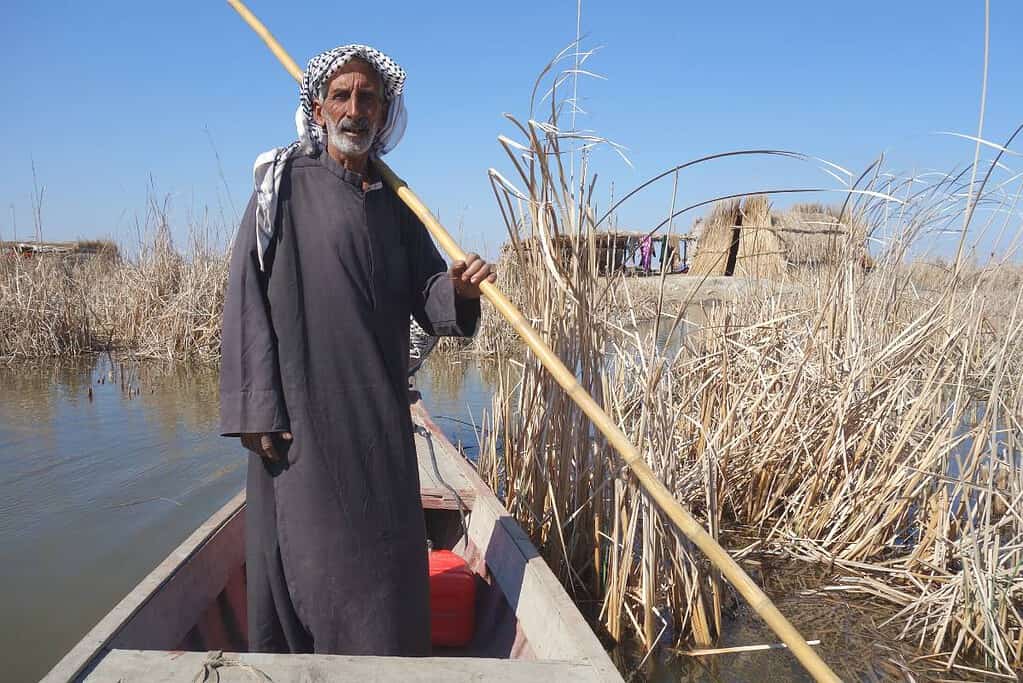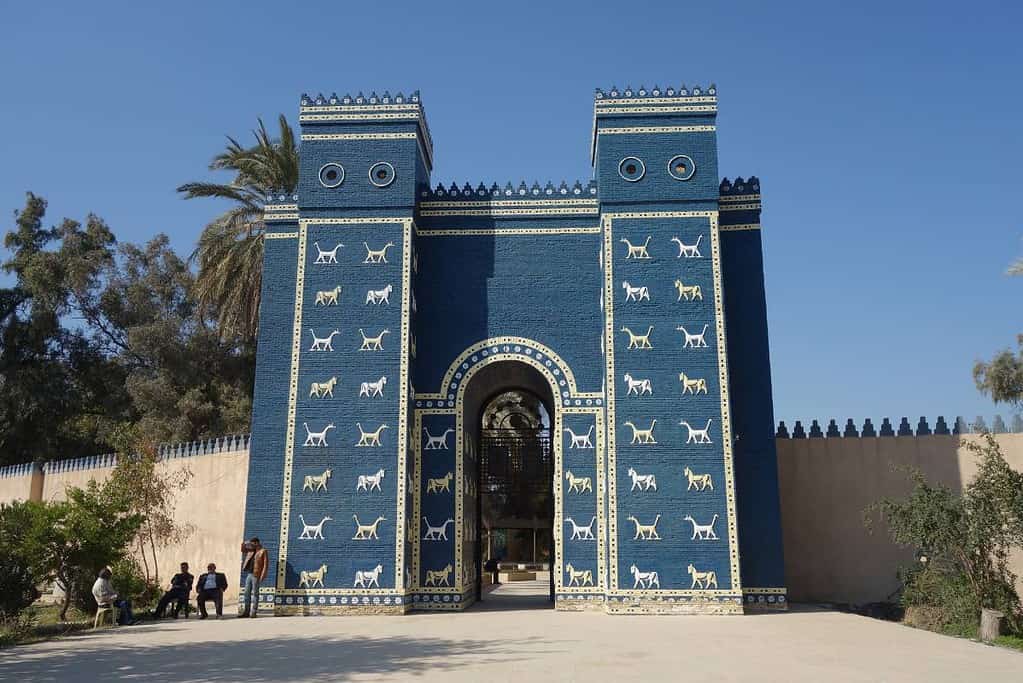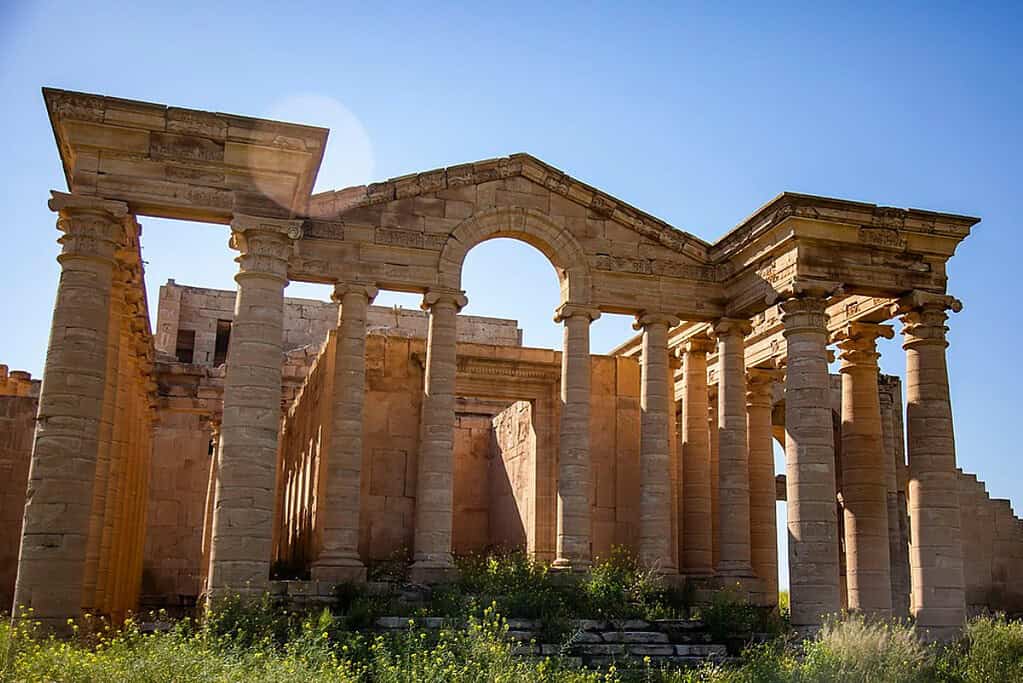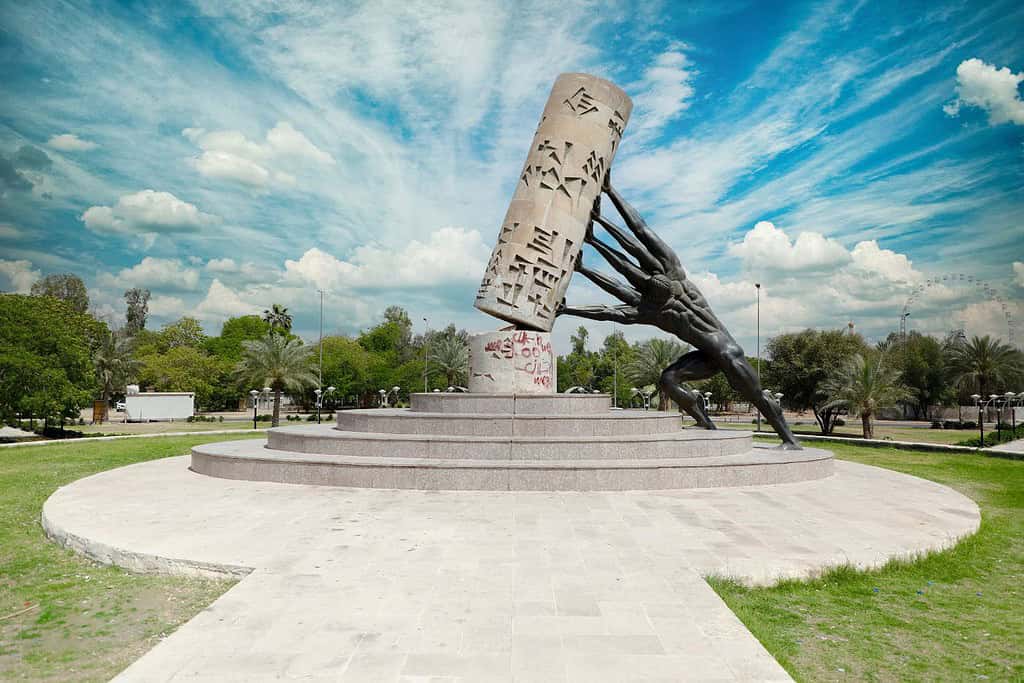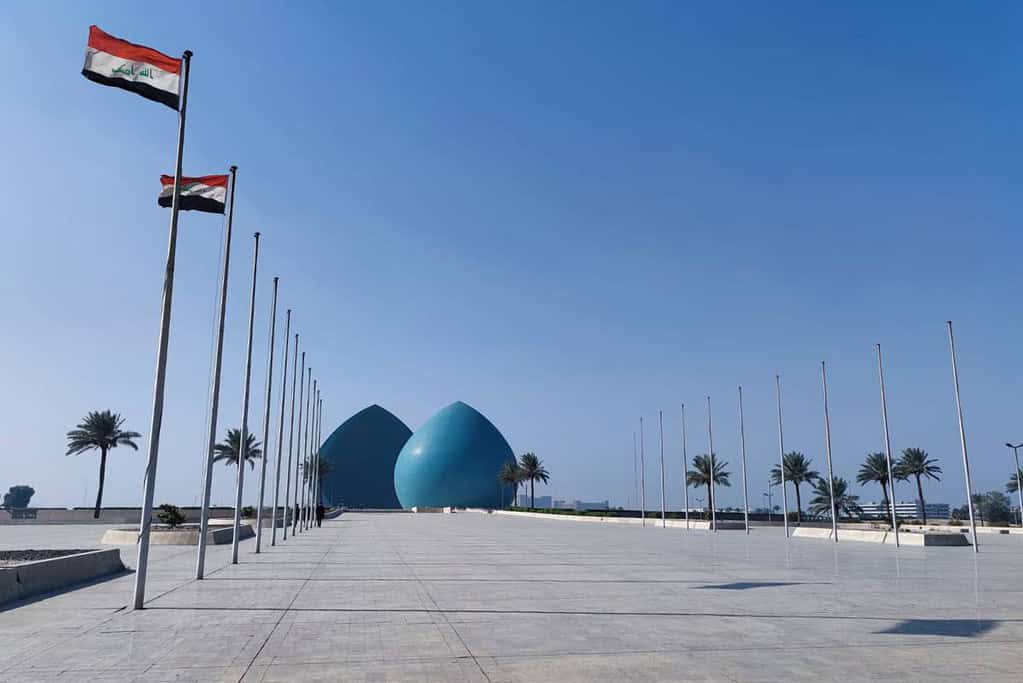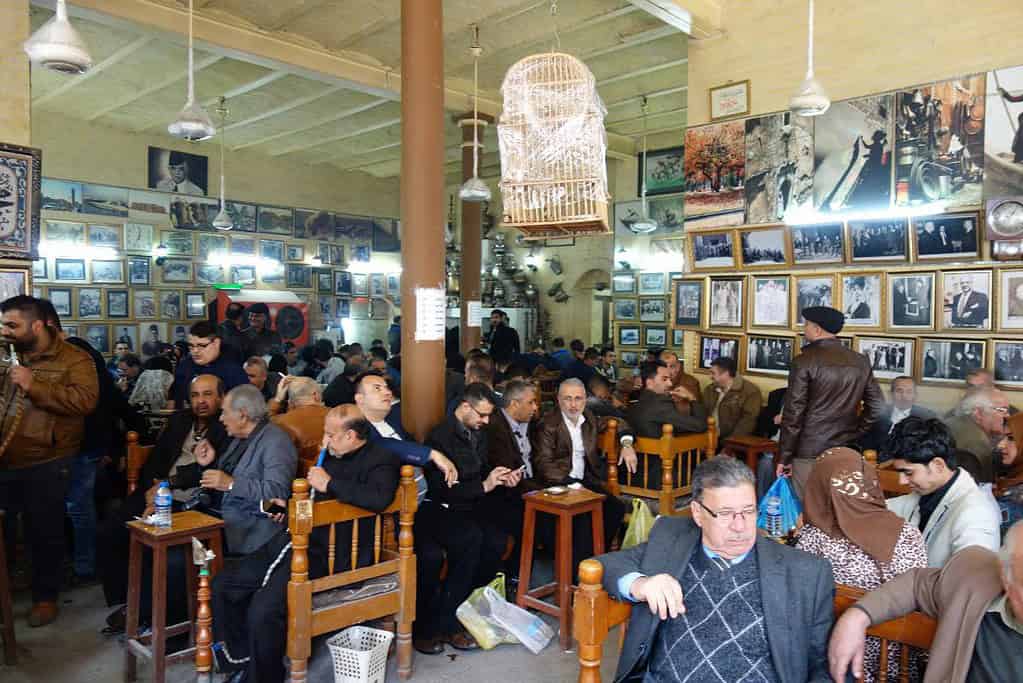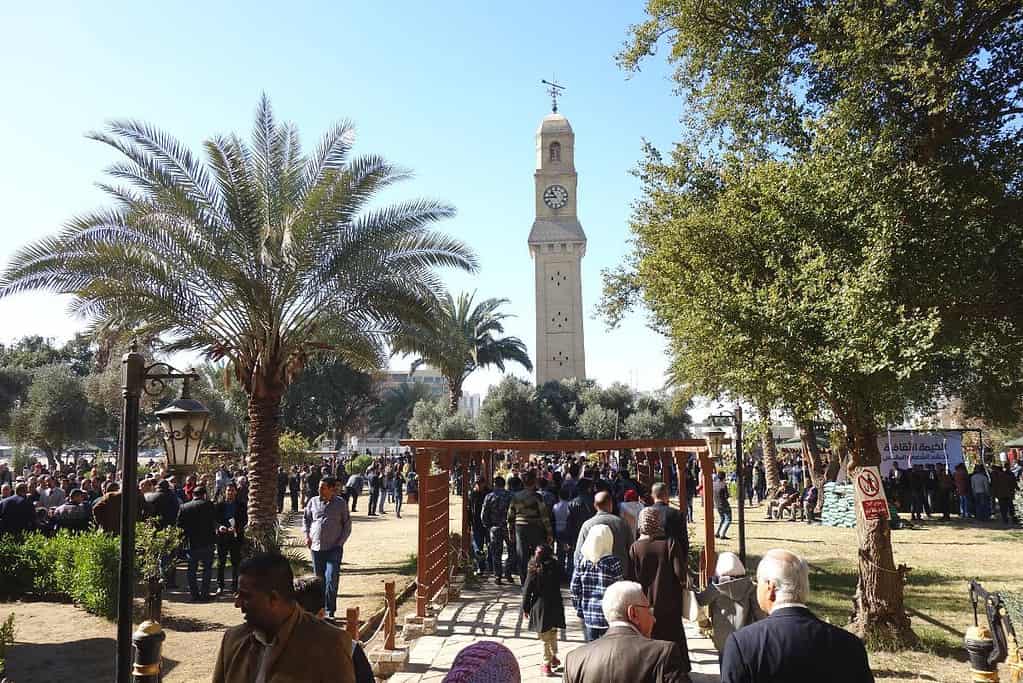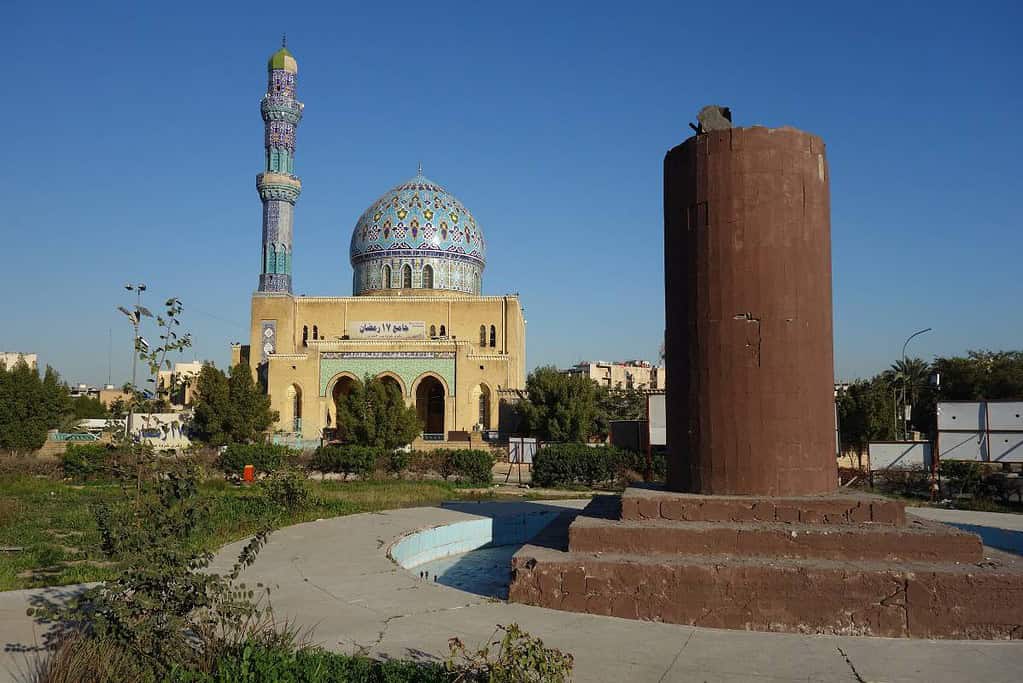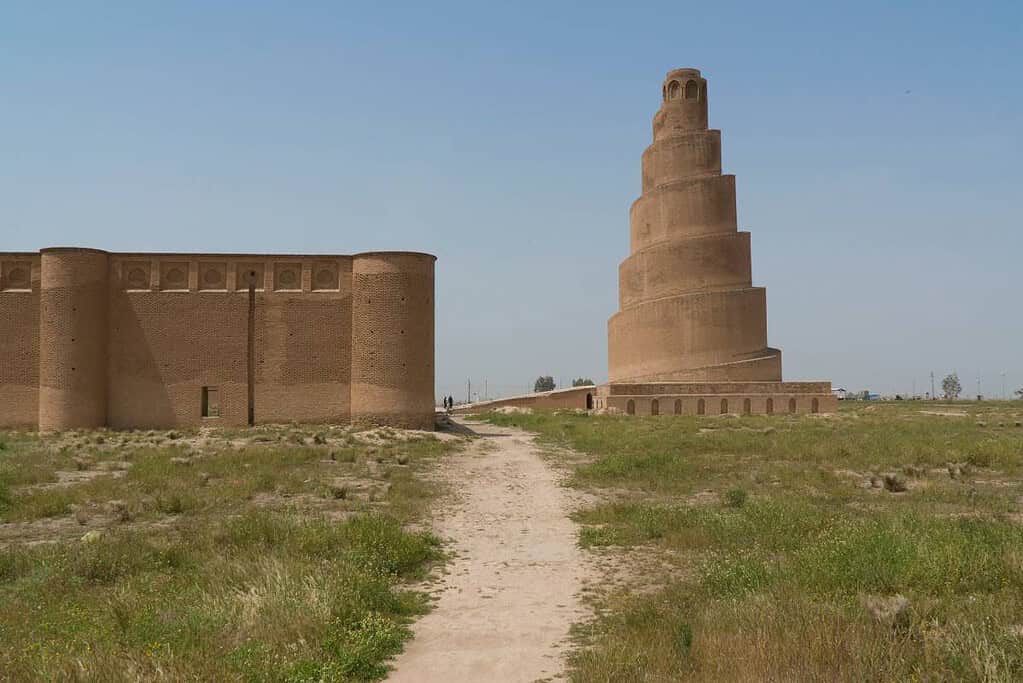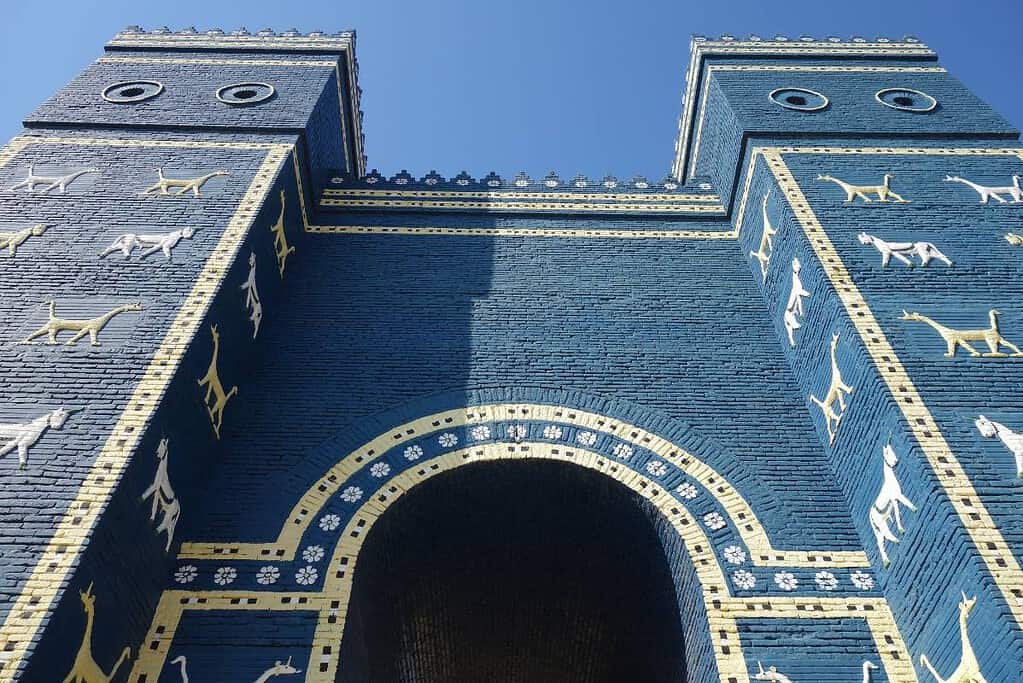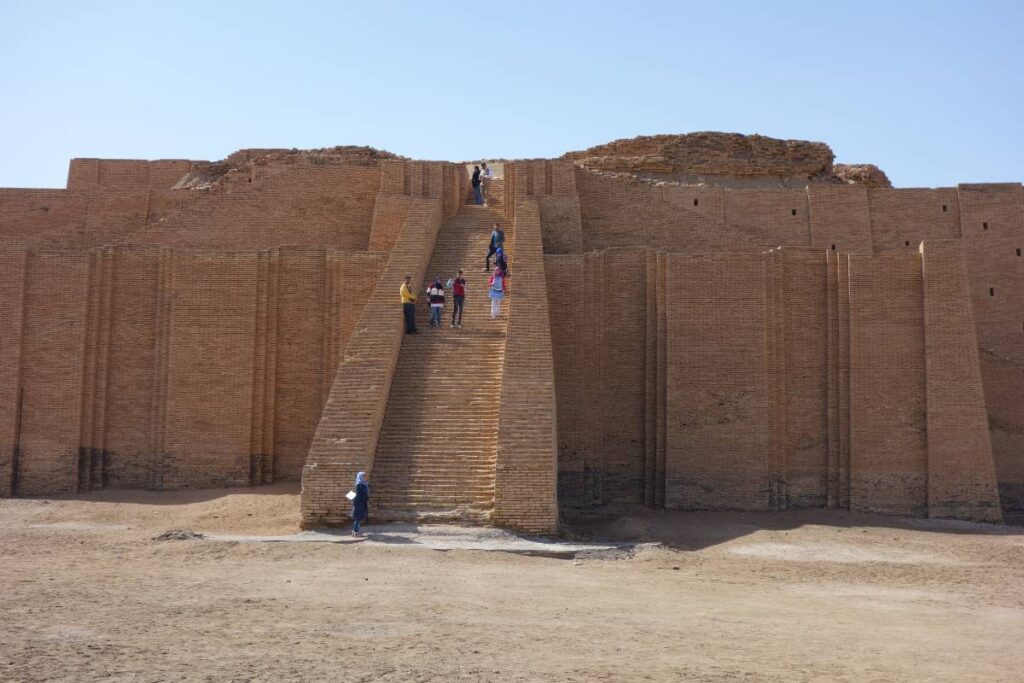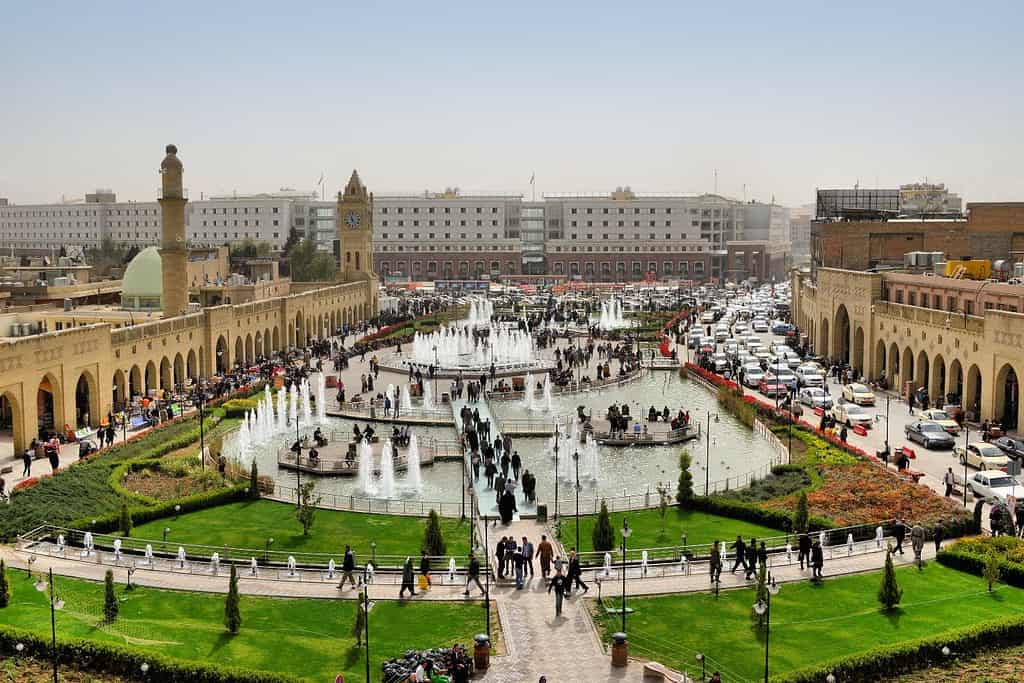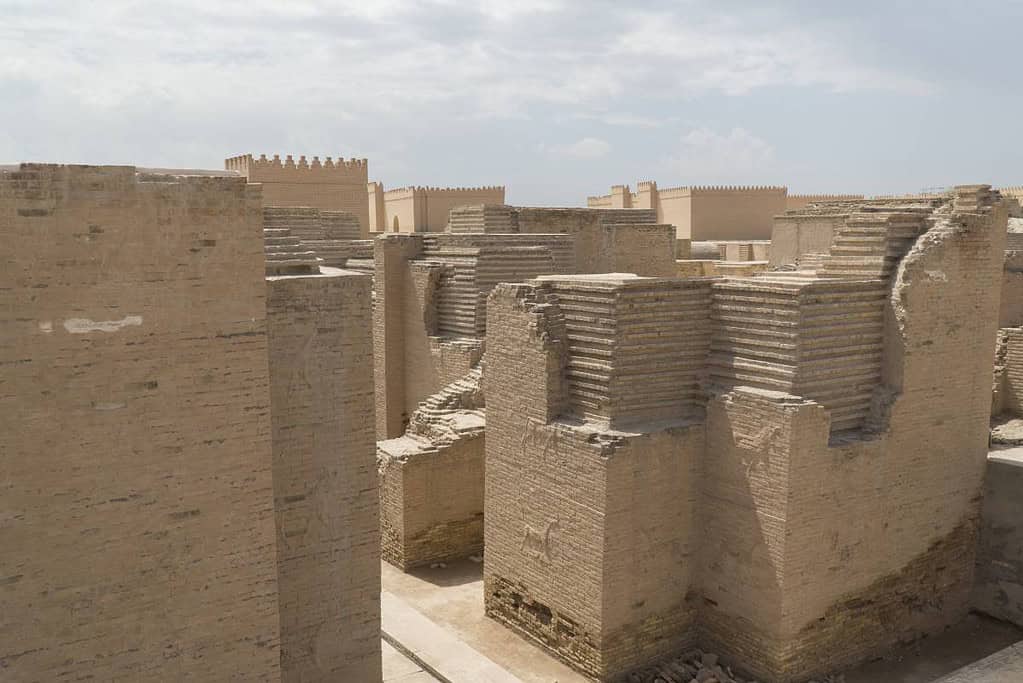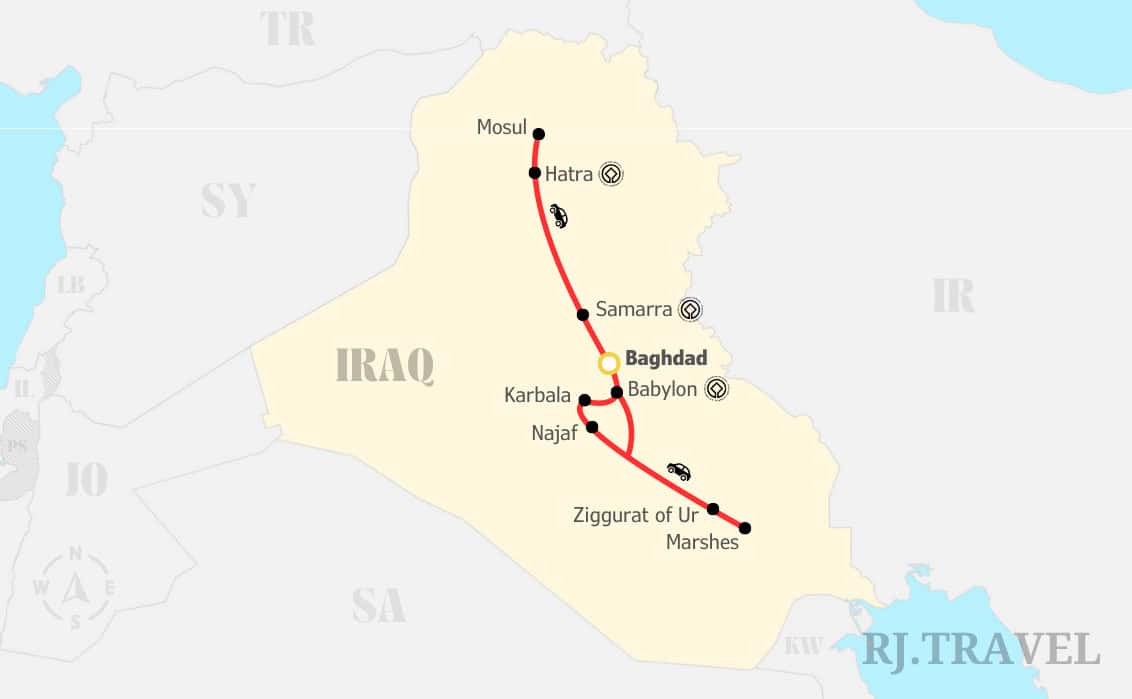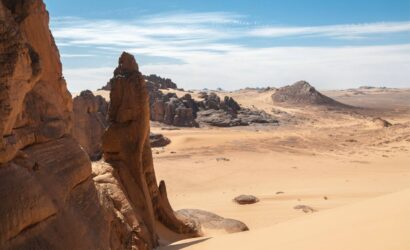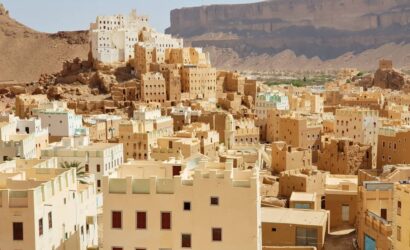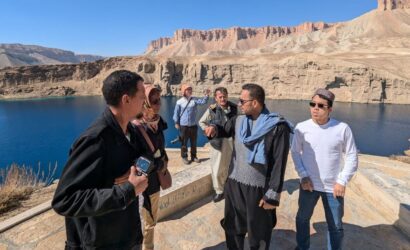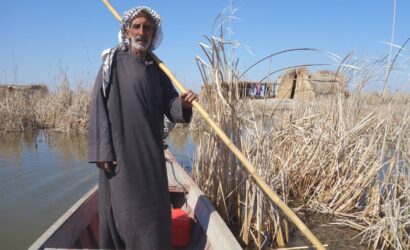This Iraq group tour focused on Iraq’s top essential sights. Don’t miss this opportunity to safely visit Iraq’s tourist attractions in our affordable group tours.
On a trip starting in Baghdad, you will visit the great sites of Babylon, Karbala, Najaf, the great Ziggurat of Ur, Mesopotamian marshes, Mosul, Samarra, and Baghdad. These are prime world monuments that are revered by historians and sightseers alike. Being a tourist in Iraq is always a great experience. Our destination manager was personally in Iraq recently preparing this tour for you. Join our tours to Iraq and travel with our expertise.
🟢 2025 Iraq Group Tour » 8-Day Itinerary – 1680 USD
Start & End in Baghdad
Not included: Mandatory entrance fees (150 USD), payable on-site by you.
- Day 1: Arrival in Baghdad » Airport Meet & Greet » Hotel transfer
- Day 2: Baghdad city tour (Liberation Square, Al-Mutanabbi Street, Abbasid Palace, Copper Market, Shabandar Café, Iraqi Martyr Monument) » Ctesiphon » Baghdad (Imam Musa Al-Kadhim Shrine)
- Day 3: Baghdad (Iraq National Museum) » Babylon (Ancient City, Saddam Hussein Palace) » Karbala (Imam Al-Abbas Shrine, Imam Hussein Shrine)
- Day 4: Karbala » Najaf (Wadi s-Salaam Cemetery) » Uruk Ancient City » Ziggurat of Ur » Nasiriyah
- Day 5: Nasiriyah » Mesopotamian Marshes (Shakhtura boat ride, tea with local family, Masgouf fish lunch) » Baghdad (Bab Al-Agha Bakery)
- Day 6: Baghdad » Samarra Archaeological City » Mosul
- Day 7: Mosul (Assyrian Wall, Old City) » Hatra Ancient City » Baghdad
- Day 8: Baghdad departure » Airport transfer // End of our services.
🔵 2026 Iraq Group Tour » 9-Day Itinerary – 2200 USD
Start in Baghdad & End in Erbil
Included: Mandatory entrance fees (155 USD), payable on-site by our team.
- Day 1: Arrival in Baghdad » Airport Meet & Greet » Hotel transfer
- Day 2: Baghdad city tour (Liberation Square, Al-Mutanabbi Street, Abbasid Palace, Copper Market, Shabandar Café, Iraqi Martyr Monument) » Ctesiphon » Baghdad (Imam Musa Al-Kadhim Shrine)
- Day 3: Baghdad (Iraq National Museum) » Babylon (Ancient City, Saddam Hussein Palace) » Karbala (Imam Al-Abbas Shrine, Imam Hussein Shrine)
- Day 4: Karbala » Najaf (Wadi s-Salaam Cemetery) » Uruk Ancient City » Ziggurat of Ur » Nasiriyah
- Day 5: Nasiriyah » Mesopotamian Marshes (Shakhtura boat ride, tea with local family, Masgouf fish lunch) » Baghdad (Bab Al-Agha Bakery)
- Day 6: Baghdad » Samarra Archaeological City » Hatra Ancient City » Mosul
- Day 7: Mosul (Assyrian Wall, Old City) » Duhok
- Day 8: Duhok » Lalish Temple » Khinnis Reliefs » Mar Mattai Monastery » Akre (Viewpoint, Market) » Erbil (Erbil Citadel, Shar Park, Market)
- Day 9: Erbil departure » Airport transfer // End of our services.
Join our monthly small groups from Baghdad to Erbil
Traveling in Iraq is always a fabulous experience. Join our group tours now since it is safe to travel to Iraq. Don’t miss this opportunity to visit Iraq’s tourist attractions safely. We will pick you up directly at the airport or your hotel. The trip to Iraq is very straightforward. Arrive at Baghdad airport quickly with the Iraqi tourist voucher we offer so that you get your Iraqi visa on arrival upon payment.
A journey across Iraq is an incredible cultural and historical experience. From the rush vibes of busy bigger cities such as Baghdad or Najaf to the peaceful and laid/back pace of charming Samarra, we offer a vast multiplicity of small group tours in Iraq to fit every style of travel interest.
You can quickly join our scheduled group tours in Iraq to explore innumerable marvels of ancient Mesopotamia, from participating in the busy bazaars to fascinating Babylon’s old city.
RJ Travel group holiday packages in Iraq include transportation, accommodation in 4-star hotels, meals, and sightseeing tours. If you have already decided to travel to Iraq on a group trip with your friends but hate to be the one to make all the plans, a well-priced international group tour package in Iraq is what you need.
Our scheduled Iraq group tours in 2025 & 2026 are small escorted tours of up to 12 people. If you are traveling solo or as a small group on a precise date and want to join other people traveling in Iraq, these trips deliver an outstanding possibility to meet new people and uncover a new country at an affordable cost.
Travel to Iraq
-
Baghdad Airport
-
Erbil Airport
-
4-star hotels
-
Included
-
Baghdad, Babylon, Karbala, Najaf, Great Ziggurat of Ur, Nasiriyah, Mesopotamian Marshes, Samarra, Mosul, Hatra, Erbil
9-day Iraq itinerary
Embark on an extraordinary journey through Iraq's most historic, cultural, and scenic destinations on our carefully crafted 9-day group tour. From Baghdad's bustling streets to Erbil’s ancient citadel, you'll discover iconic landmarks, hidden gems, and experience authentic Iraqi hospitality.
Upon your arrival at Baghdad International Airport, our professional English-speaking guide will greet you, ready to assist you throughout your journey. Enjoy a comfortable private transfer to your hotel in the heart of Baghdad, Iraq’s bustling capital. Settle in, relax, and take in the atmosphere of this historic city, once the center of the Islamic Golden Age. This evening, you'll meet your fellow travelers and receive an overview of the exciting days ahead. Get ready for a journey through time and history, guided by local experts who will make sure you don’t miss a thing.
We begin in Liberation Square, created in 1959 to commemorate Iraq’s new republican identity after the fall of the monarchy. Its towering Freedom Monument by Jawad Saleem reflects decades of revolution and resilience. From there, we stroll down Al-Mutanabbi Street, the city’s literary artery for over 100 years, where booksellers and thinkers still gather as they did during the British Mandate in the early 20th century.
We continue to the Abbasid Palace, built in the late 12th century during the reign of Caliph Al-Nasir, a rare surviving architectural relic of Baghdad’s medieval zenith. At the Copper Market, active since the Ottoman era (16th–19th centuries), we watch craftsmen shape delicate designs by hand. Nearby, the legendary Shabandar Café, opened in 1917, serves strong tea and stronger opinions—it has hosted poets, politicians, and rebels for generations.
The morning ends at the Iraqi Martyr Monument, completed in 1983 to honor lives lost during the Iran-Iraq War. This turquoise dome, split dramatically down the middle, captures the gravity of recent history.
In the afternoon, we head to Ctesiphon, once the imperial capital of the Parthian Empire (beginning in the 1st century BCE) and later the Sassanian Empire. Its defining structure, the Taq Kasra, built around 540 CE, still holds the record as the largest single-span brick arch in the world. It is a breathtaking window into the power and engineering of pre-Islamic Persia. We return to Baghdad and conclude the day with a visit to the sacred Shrine of Imam Musa al-Kadhim, built around 799 CE, a key pilgrimage site for Shia Muslims.
Our day starts at the Iraq National Museum, reopened in 2015 after years of looting and restoration. The exhibits span over 5,000 years of history, including original artifacts from the Sumerians (from around 3100 BCE), Akkadians, Babylonians, and Assyrians—some of the oldest written texts and sculptures ever discovered.
We then travel to the site of Babylon, once the jewel of Mesopotamia. First rising to power under Hammurabi in the 18th century BCE, the city flourished under King Nebuchadnezzar II, who rebuilt it magnificently in the 6th century BCE. Here we walk along the Processional Way through the reconstructed Ishtar Gate, and view ruins attributed to the Hanging Gardens, one of the Seven Wonders of the Ancient World. From the heights, we explore the abandoned Saddam Hussein Palace, built in the 1990s directly overlooking Babylon’s ruins—a stark contrast of ancient grandeur and modern ambition.
By sunset, we arrive in Karbala, revered in Shi’a Islam as the site of the martyrdom of Imam Hussein in 680 CE. The city glows with pilgrims as we visit the Shrine of Imam Al-Abbas, built in the 7th century, and the Shrine of Imam Hussein, both central to the annual Ashura commemorations that draw millions of believers.
From Karbala, we journey to Najaf, one of the world’s most important Shi’a cities. We pass by the Imam Ali Shrine, dating back to 977 CE, before visiting Wadi al-Salaam, the largest cemetery on Earth, active since the 7th century, and estimated to contain over five million graves.
Continuing south, we reach the ancient ruins of Uruk (not possible to visit during rainy days), considered the first true city in human history, founded around 4000 BCE. This was the home of the legendary King Gilgamesh and birthplace of writing (cuneiform). Nearby lies Ur, a Sumerian city-state from the 3rd millennium BCE, known as the birthplace of the Prophet Abraham. We climb the impressive Ziggurat of Ur, built during the reign of King Ur-Nammu around 2100 BCE, one of the most iconic and best-preserved monuments of the Sumerians.
We end the day in Nasiriyah, capital of Dhi Qar Province and a modern gateway to the south’s deep archaeological heritage.
Today we explore the Ahwar, or Mesopotamian Marshes, a UNESCO World Heritage site and believed by many to be the location of the Biblical Garden of Eden. Once drained by Saddam’s regime, the marshes have seen ecological revival since 2003 and are home to the Ma'dan (Marsh Arabs) who have lived here for over 5,000 years.
We ride in a traditional shakhtura canoe through the reed-covered landscape, visit a local family in their mudhif (guesthouse), and share tea and conversation. Lunch is the famed masgouf, fresh carp grilled over reeds—an Iraqi specialty that’s both ancient and deeply regional.
On our return to Baghdad, we stop at the renowned Bab al-Agha Bakery, operating since the 1930s, where bakers pull hot sesame-studded flatbread from wood-fired ovens.
We begin with a drive to Samarra, which served as the Abbasid capital from 836 to 892 CE. Its most striking monument is the Malwiya Minaret, part of the Great Mosque of Samarra, built in 851 CE. The spiral structure is one of Islam’s most unique architectural achievements.
Continuing through desert plains, we reach Hatra, a fortified Parthian city founded in the 3rd century BCE and flourishing until its destruction by the Sassanids in 241 CE. Its Greco-Roman–style temples, stone towers, and massive walls still stand despite centuries of isolation. By evening, we arrive in Mosul, once the cultural capital of northern Iraq.
We begin with the ancient Walls of Nineveh, built by King Sennacherib around 700 BCE, encircling what was once the greatest city in the world—capital of the Assyrian Empire. Much of it remains visible amidst the modern sprawl of Mosul.
We walk through the Old City, still scarred from the battle to retake it from ISIS in 2017, but slowly reviving with restored mosques, churches, and markets. The visit is a powerful encounter with both destruction and resilience.
Later, we travel north to Duhok, a greener town in Iraqi Kurdistan, where landscapes shift and cultural identity begins to change.
Our first stop is Lalish, the sacred valley of the Yazidis. The Lalish Temple, with its signature conical domes, has served as the religious center of Yazidism since at least the 12th century, though oral traditions trace it back to ancient Mesopotamian beliefs.
We continue to Khinnis, where Assyrian King Sennacherib had royal inscriptions carved into rock around 690 BCE, celebrating his irrigation projects and military victories. From there, we visit Mar Mattai Monastery, founded in 363 CE, perched high above the Nineveh plains and still home to Syriac Orthodox monks.
In the afternoon, we pass through Akre, a town famed for its Nowruz celebrations and old stone alleyways. We then reach Erbil, capital of the Kurdistan Region. We visit the Erbil Citadel, continuously inhabited for over 6,000 years, with visible layers dating back to the 5th millennium BCE. The day ends with a stroll through Shar Park and the bustling Qaysari Bazaar, where local life and trade continue uninterrupted for centuries.
Optional airport transfer or additional time to discover Erbil’s citadel, bazaars, and museums is available. Customized extensions can be arranged. Following a journey that encompasses over 5,000 years of history—from the Sumerians and Babylonians to contemporary Iraq—you will depart with enriched perspectives, vivid memories, and firsthand experiences of Mesopotamia’s enduring heritage.

